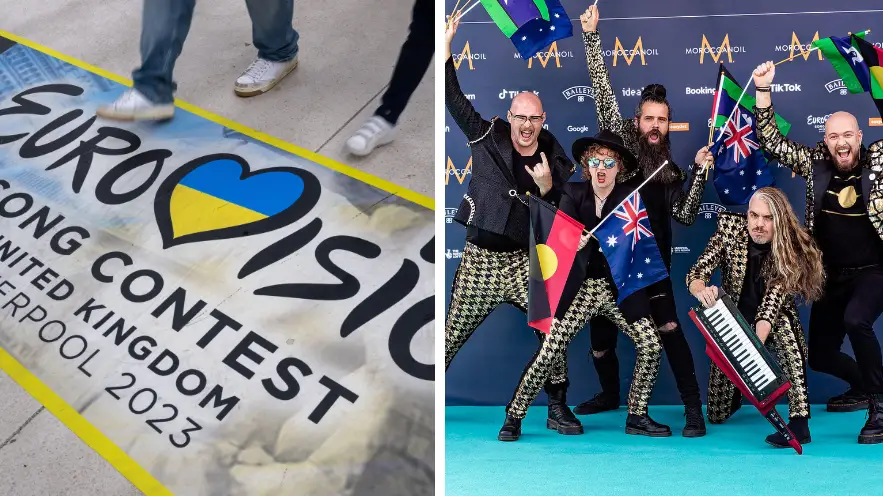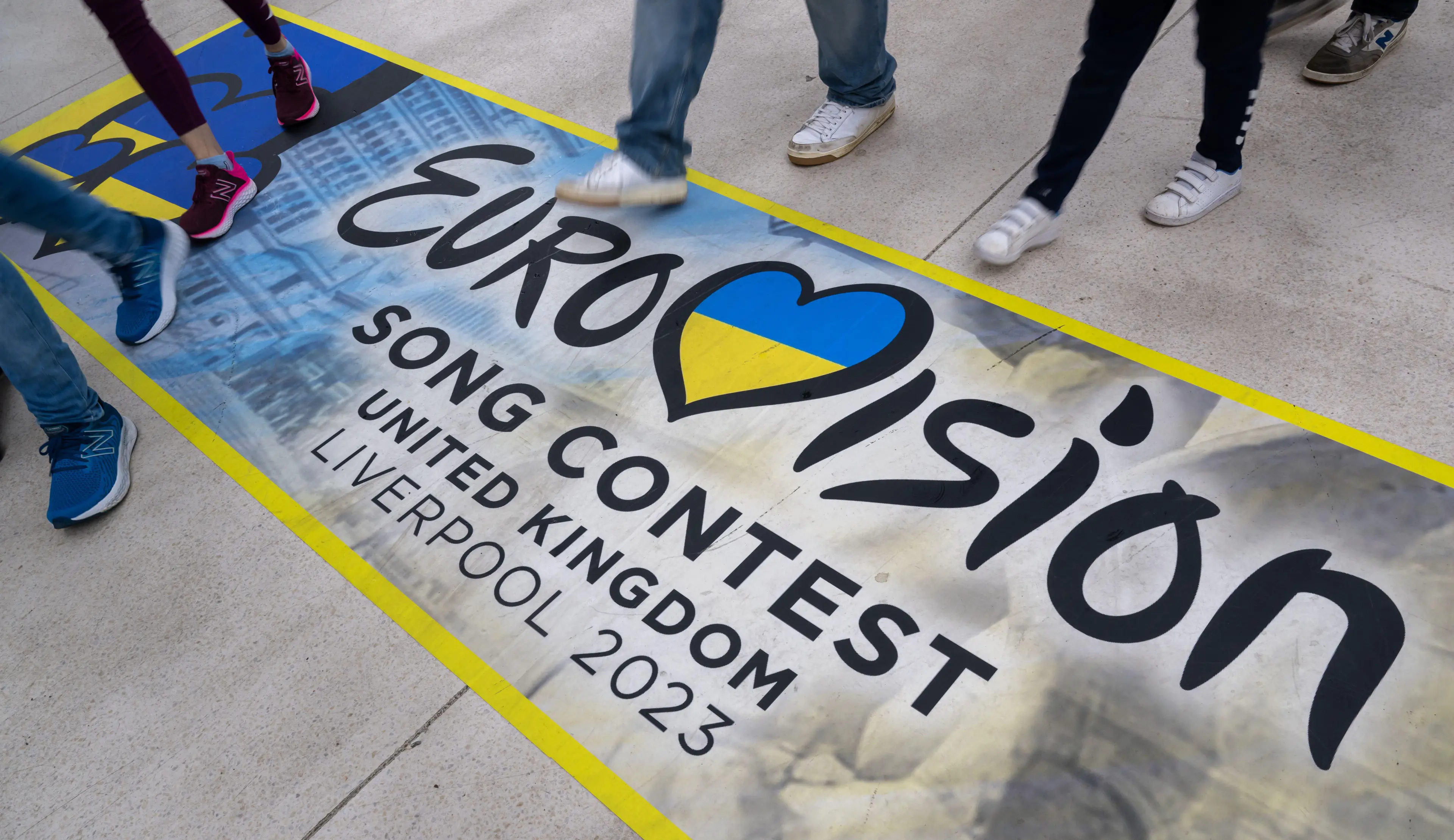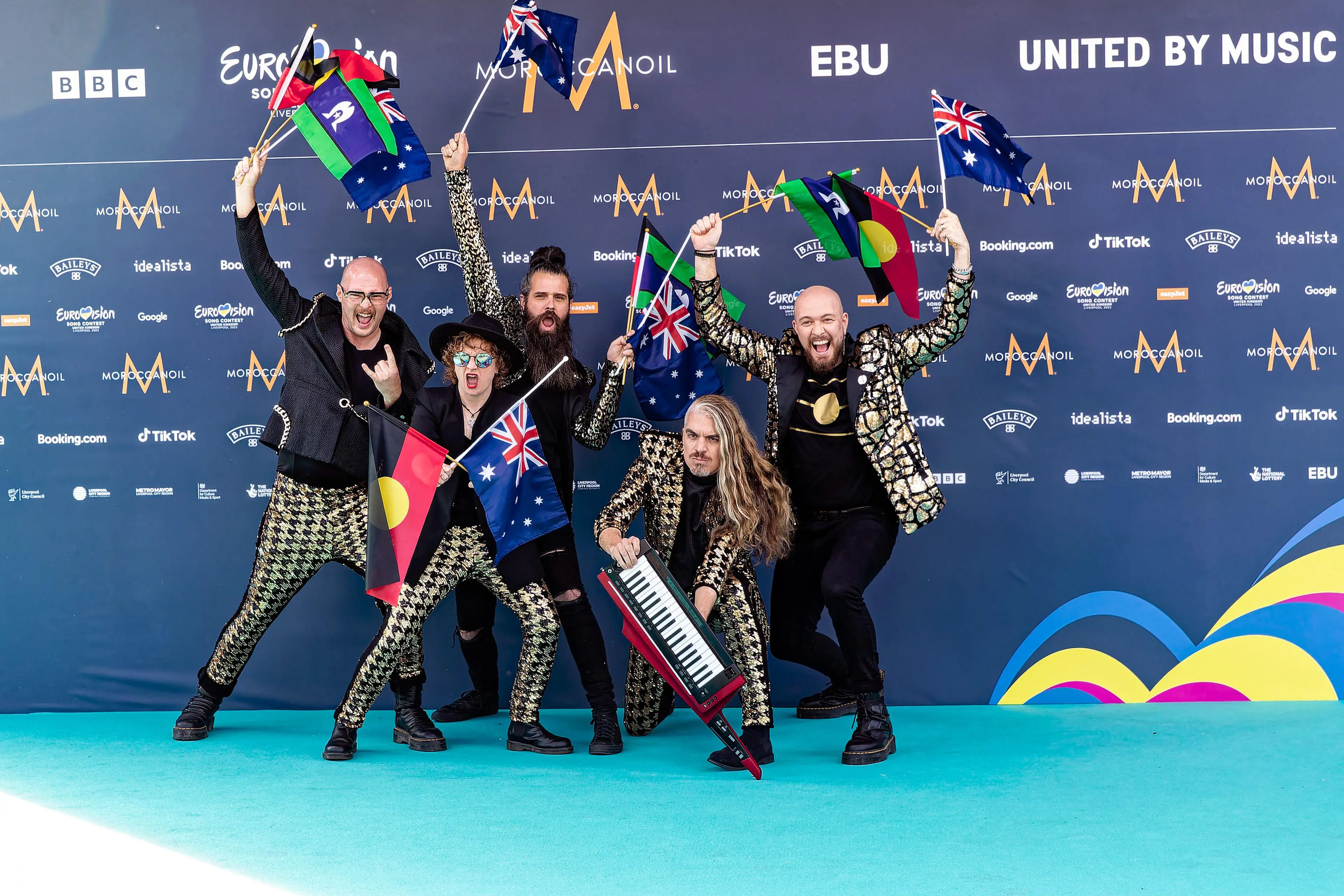As you’re no doubt aware, Eurovision is touching down in Liverpool this weekend, arriving on British shores in a festival of glitter, sparkle, and sometimes dodgy songwriting.
To be honest, a lot of the time the songs don’t really matter at all, do they?
Eurovision these days is a lot more about the fun, the inclusivity, and the enjoyment of getting everyone from across Europe and beyond together for a big knees up.
That ‘and beyond’ applies more to Australia than anywhere else, but why do the Aussies merit an invite, given that they’re about as far away from anywhere that could be described as ‘Euro’ as possible?
Well, the story goes back to a special anniversary for the content, when they were given an invite, which was extended once and then became a longer-term deal.
Before we can get to that though, we have to understand how Eurovision is made in the first place.
DPA Picture Alliance/Alamy The whole show is organised by a group called the European Broadcasting Union, which is made up of countries from around the continent.
Some countries pay more – like the UK, France, Spain etc – and therefore manage to get straight into the finals of the contest every year, whereas other countries who don’t contribute as much end up in qualifiers such as this week’s semi-finals.
That’ll be important later, honest.
Anyway, in 2015 – the 60th anniversary of the EBU – the theme for that year’s Eurovision was ‘Building Bridges’.
That meant that Australia got an invite to the big party.
They were allowed to get straight through into the final through special means, so as not to ‘reduce the chances’ of the countries competing in semi-finals.
Told you we’d come back to that, didn’t we?
That first invite proved to be a great success, with the show performing well in Australia, and – crucially – the Aussie act performing well at the event.
So, they were invited back and have been there ever since.
In 2016, the Australian act Dani Im came second to Ukraine’s Jamala, cementing their place amongst the Eurovision crowd.
They were then invited back on a year-by-year basis, before a five year contract was extended to them in 2018.
Maths fans will have noticed that this means that 2023 will be the last year of that contract, and it remains to be seen whether Australia will keep appearing.
Ahead of this weekend’s festivities, the head of the antipodean delegation Paul Clarke said: "This is a wonderful validation of what Australia has brought to Eurovision, and we say 'Thank You Europe!' for their decision.
“The Australian music artists and industry have completely risen to the exciting challenge.
"Australians have really fallen in love with the joy, and Eurovision has become part of the Australian entertainment calendar.
“Europe knows it can always expect great music and passion from Australia."

 Tom Wood
Tom Wood
